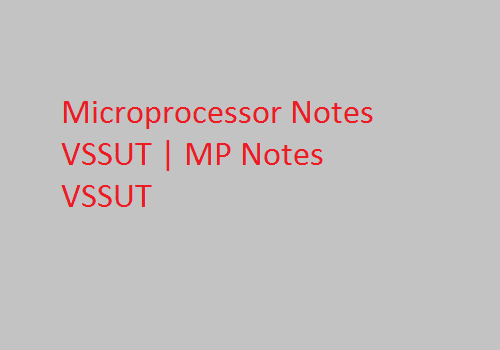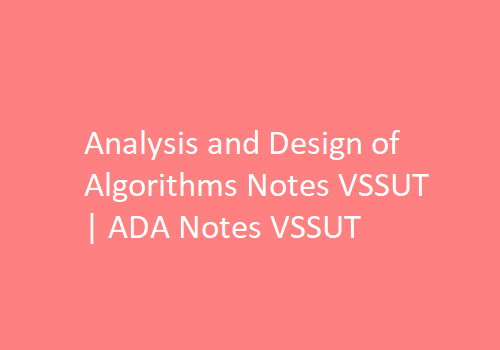Geotechnical Engineering Notes pdf – GE notes pdf file

Note :- These notes are according to the R09 Syllabus book of JNTU.In R13 and R15,8-units of R09 syllabus are combined into 5-units in R13 and R15 syllabus. If you have any doubts please refer to the JNTU Syllabus Book.
Geotechnical Engineering Notes PDF – GE Notes PDF


Looking for comprehensive notes on Geotechnical Engineering for your B.Tech studies? You are in the right place! Here, you can download the GE Notes PDF tailored to the latest syllabus by JNTU, providing you with all the essential topics and concepts needed to excel in this subject.
Geotechnical Engineering PDF Lecture Notes – JNTU
The Geotechnical Engineering Notes PDF is an indispensable resource for B.Tech students studying at JNTU. These notes are specifically designed to cover the entire syllabus, making it easier for students to grasp complex concepts such as soil mechanics, permeability, soil classification, and effective stress.
Overview of Geotechnical Engineering Notes PDF
The GE Notes PDF follows the updated syllabus pattern from JNTU, which combines the eight units of the older R09 syllabus into five more comprehensive units in the R13 and R15 syllabuses. This updated structure helps students focus on the most critical aspects of geotechnical engineering, making learning more efficient and effective.
Topics Covered in Geotechnical Engineering Handwritten Notes
Below is a detailed breakdown of the topics covered in the Geotechnical Engineering course. These notes provide thorough explanations, diagrams, and examples to ensure a solid understanding of each topic.
Unit 1: Soil Formation and Classification
- Formation of Soils and Clay Minerals: Understanding the origin and formation processes of soils and clay minerals.
- Basic Structural Units: Detailed study of isomorphous substitution and the formation of clay minerals.
- Structure of Clay Minerals: Insight into two-layer sheet minerals like Kaolinite and Montmorillonite.
- Fine Soil Fabric and Phase Relations: Explanation of the three-phase system, volume relations, and weight relations in soils.
Unit 2: Soil Properties and Classification Systems
- Soil Classification: Indian Standard Soil Classification System, including grain-size distribution curves and grading characteristics.
- Phase Relationships: Understanding dry unit weight, bulk unit weight, saturated unit weight, buoyant unit weight, and their inter-relationships.
- Soil Classification Methods: Learning about liquidity index and other classification parameters.
Unit 3: Soil Stress and Effective Stress
- Stresses in the Ground: Introduction to pore water pressure and effective stress under hydrodynamic conditions.
- Importance of Effective Stress: How effective stress influences soil behavior and stability.
- Permeability of Soils: Discussion on permeability variations among different soils and methods of laboratory measurement.
Unit 4: Permeability and Seepage Analysis
- Permeability Analysis: Pressure, elevation, and total heads, and their relationship with permeability.
- Laboratory Measurement of Permeability: Techniques for measuring permeability in various soil types.
- Two-Dimensional Flow: Calculation of flow in a channel, focusing on increases in density, strength characteristics, and load-bearing capacity.
Unit 5: Soil Improvement and Stability
- Soil Stabilization Techniques: Methods to decrease undesirable settlement, increase slope stability, and reduce permeability.
- Control of Water Seepage: Techniques to reduce swelling, shrinkage, frost damage, and erosion damage.
- Enhancing Soil Properties: Strategies to develop high negative pore pressures (suctions) for increasing effective stress.
Links to Download GE Notes PDF
To aid in your preparation, we have provided direct download links to the notes for each unit as well as the complete set:
- Complete Notes: Download Complete Notes
- Unit 1 Notes: Download Unit 1 Notes
- Unit 2 Notes: Download Unit 2 Notes
- Unit 3 Notes: Download Unit 3 Notes
- Unit 4 Notes: Download Unit 4 Notes
- Unit 5 Notes: Download Unit 5 Notes
These resources are excellent for comprehensive revision and deep understanding of the subject matter.
Benefits of FREE GE Handwritten Notes PDF
- Comprehensive and Concise: The notes are meticulously organized to cover all key concepts in Geotechnical Engineering, from basic principles to advanced topics.
- Free Accessibility: These notes are available for free, ensuring that all students have access to high-quality educational materials.
- Expertly Compiled: The notes are prepared by subject experts, ensuring accuracy and reliability.
- Easy to Digest: The handwritten format provides a more personalized learning experience, making it easier to understand complex topics.
- Ideal for Exam Preparation: The detailed explanations, coupled with practical examples, make these notes perfect for exam preparation.
FAQs About Geotechnical Engineering Notes PDF
Q1. Where can I download the Geotechnical Engineering Notes PDF?
- You can download the notes from the provided links for each unit or the complete set from Smartzworld.
Q2. How to download the GE Notes PDF?
- Simply click on the download links provided above for each unit or the complete set of notes.
Q3. How many modules are covered in the GE Notes PDF?
- The GE Notes PDF covers five modules, according to the revised JNTU syllabus.
Q4. What topics are covered in the GE Notes PDF?
- Topics include soil formation, clay minerals, soil classification, permeability, stress in soils, effective stress, and soil improvement techniques.
Q5. Where can I get the complete GE Handwritten Notes PDF for free download?
- The complete GE Handwritten Notes PDF is available for free download from Smartzworld.
Q6. How to download GE Handwritten Notes PDF?
- You can download the handwritten notes using the provided links on this page.
Q7. How to Download FREE GE Notes PDF?
- All notes are available for free; just click on the download links above to access them.
Always choose Smartzworld to download GE Notes PDF for comprehensive, high-quality study materials that help you excel in your Geotechnical Engineering course. Whether you’re preparing for exams or enhancing your knowledge, these notes are the perfect resource to achieve academic success.


